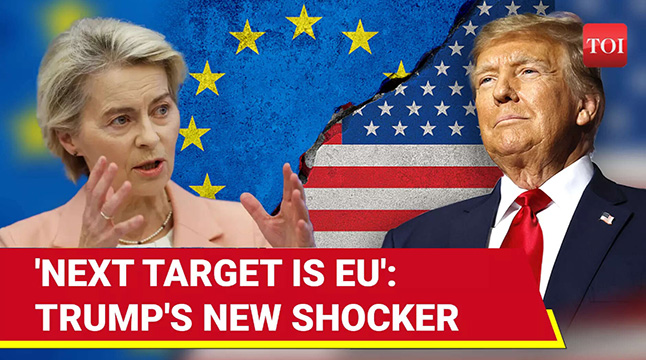
Donald Trump has announced on social media that US tariff negotiations with the EU are going nowhere and from the 1st of June the US will impose a 50 per cent tariff on the EU. Under Trump’s “reciprocal tariffs” scheme announced in March, the EU was due to be subject to a 20 per cent tariff on most goods (having had a 25 per cent tariff imposed on its cars, steel and aluminium in March). Trump subsequently replaced the reciprocal tariffs with a 10 per cent rate on everyone except China, during a 90-day negotiation window due to last until the 8th of July.
The same day Trump had announced his blanket 10 per cent rate, the EU had announced retaliatory measures against the US. The EU kept those even with the 10 per cent tariff, showing no inclination to be intimidated by Trump’s tough talk, notes ‘The Telegraph’.
The EU are no angels when it comes to trade barriers and properly targeted negotiations might have achieved genuine improvements. However, it was always most unclear how these particular US negotiations with the EU could get anywhere, because there was no clear basis for Trump’s proposed tariffs on the EU anyway — just an inchoate sense on the US side that things must be unfair because the US runs a trade deficit with the EU and the strange demand that the EU had to pay the US not only in compensation for any future trade deficit but to make recompense for past deficits.
Goods trade alone, between the US and EU, was worth roughly $1 trillion in 2024. A trade war between these two huge economic blocs would result in massive dislocations in international trade and finance. Trump’s initial tariffs and threats of more already caused the world and US economies to stall in the first quarter of 2025. A full-blown US-EU trade war would be likely to make that even worse.
The UK position in all this is not straightforward. It is true that because we are no longer EU members we are not subject to this 50 per cent rate and we have been able to conclude an initial deal with Trump to cut US tariffs to 10 per cent pending a wider-ranging trade agreement to be signed, hopefully, later this year. In the meantime, the EU being subject to much higher tariffs than the UK means it is possible that some UK-based firms may have the opportunity to sell more to the US now that their EU rivals are stymied.
The UK may also have the opportunity to gain through cheaper imports from the EU of products that would otherwise have been destined for the US.
Be all that as it may, such gains seem unlikely to make up for a range of sharp losses. Slower US growth as a result of tariffs will mean that UK exports of services to the US will be reduced. A damaged EU and damaged wider world economy will also harm opportunities for UK exporters and investors.
It’s an economic and diplomatic mess. And everything seems likely to get worse – potentially a lot worse – before it gets better.
read more in our Telegram-channel https://t.me/The_International_Affairs

 10:56 27.05.2025 •
10:56 27.05.2025 •






















